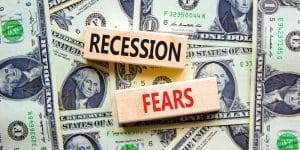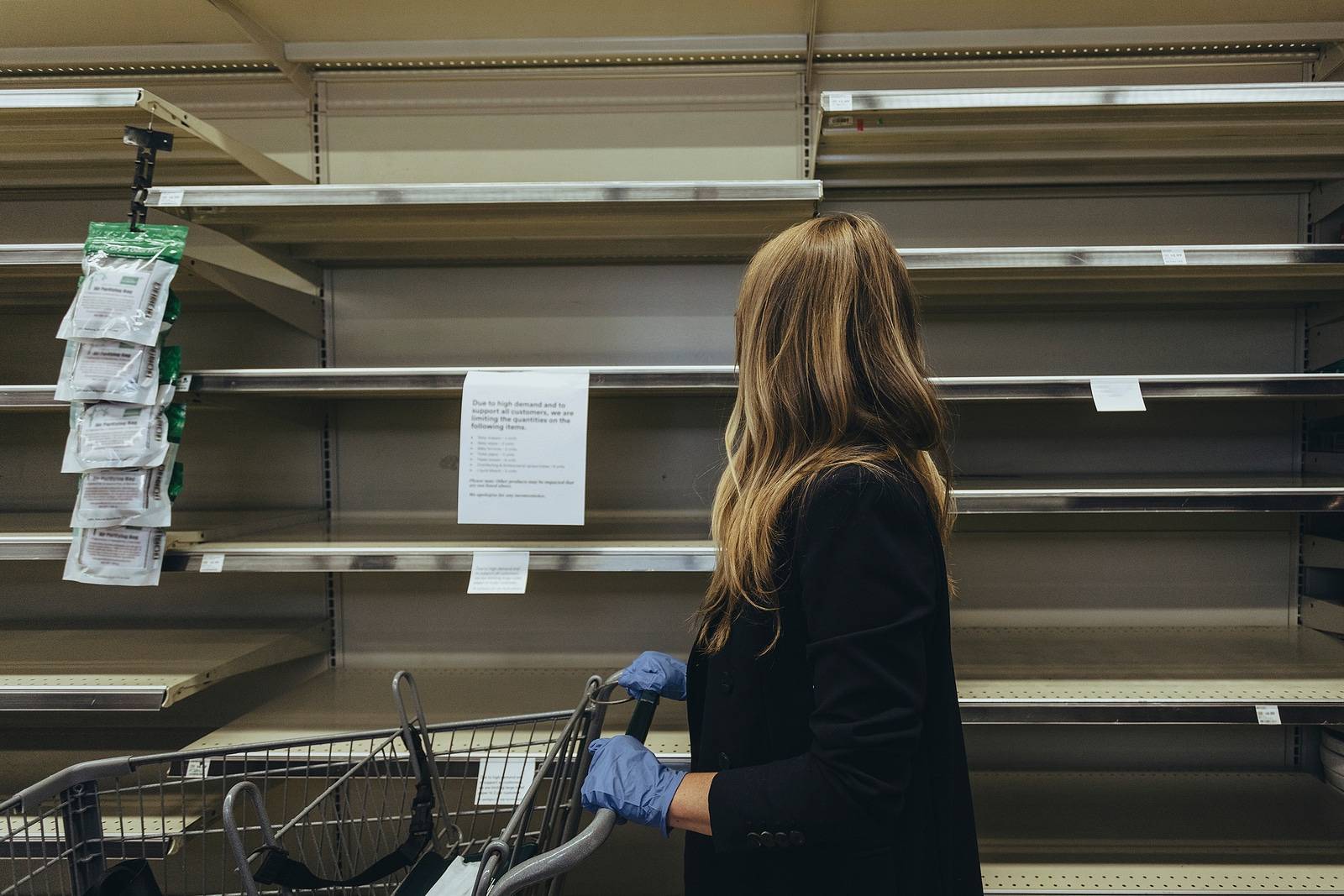How to prepare for a recession with food and other necessities is something that is on everyone’s mind lately. Every day, financial experts worldwide report on countries either headed for or already in the middle of an economic recession.
With inflation and interest rates spiking at 40-year highs, it is impossible to avoid the rising costs of everything. Gas prices hit a frightening $5 per gallon average in the US and almost $7 in Canada. The cost of groceries has also risen by double percentage digits in 2021 and 2022 in these countries as well.
Stock market swings, which have resulted in significant hits to many retirement accounts, continue globally. Cryptocurrencies are crashing, some by more than 60 percent year over year, and only a few believe the free fall will stop anytime soon.
It’s hard not to worry, especially considering how rough things have been in recent years. Financial issues such as shrinking savings and rising credit card debt are problems many average citizens currently face around the globe.

How To Prepare For A Recession With Food And Other Necessities
How To Prepare For A Recession
During any economic downturn, your finances will be better off if you focus on maintaining or reducing your current spending levels. How prepare for a recession begins first with being aware of where your money is currently going and then prioritizing where it should be spent.

How To Prepare For A Recession
Higher interest rates are one of the most severe impacts on your finances. Rate hikes affect everyone that has a home mortgage, savings, car loans, or money in the stock market. Any adjustable loan rate, including credit card balances, will quickly become much more expensive.
How to Prep For A Recession The Smartest Way
Get that credit card debt paid quickly. Now. “Job number one for anyone with a credit card is to pay off their balances as soon as possible,” said Matt Schulz, chief credit analyst at LendingTree. “When a recession may be on the way, and interest rates are rising rapidly, it’s even more important.”
Paying off debts can be challenging, but specific techniques can help you get out of it much faster. For example, you could take out a personal or debt consolidation loan with a lower interest rate. Another option is to take advantage of a credit card with a 0 percent balance-transfer offer. In either case, paying attention to any upfront fees for transferring balances is essential.

How To Prepare For A Recession With Food And Other Necessities
If you can’t qualify for a 0% interest rate, contact your credit issuer and ask them to lower your annual percentage rate. They may agree or offer you a different product at a better rate. In fact, according to one study, about 70% of people who’ve tried in the last year were successful. But remember, this will only work if you ask for it!
How to Prepare For A Recession With Investments
On average, recessions last 11 months or more. The shortest recession period on record is the 2020 pandemic-induced recession that lasted three months. Other recessions have lasted ten years or longer, so there is no way to predict how long a recession will last, but here are some tips on preparing for a recession with investments from some of the top financial advisors.
First, don’t be afraid of bear markets. If you have not experienced one before, you’ll likely be petrified as you see the downturn in stock values. The S&P 500 index has entered a bear market period. A bear market is normally defined as a 20% drop from its previous high.
According to Anthony Saglimbeni, global markets strategist for Ameriprise Financial, the average length of a US bear market since 1950 is over 400 days. What does being in “bear territory” mean? The market is volatile when stocks are in bear territory, and many stocks’ values are declining.

How To Prepare For A Recession With Food And Other Necessities
How To Prepare For A Recession With Investments
One of the best time-tested strategies for investing is dollar-cost averaging. When you use this strategy, you invest the same amount of money regularly, regardless of market changes. During a bear market, the cost of stock purses is lower, so the potential for your investment to gain value is higher, but that doesn’t mean there’s no risk.
Often, stocks outperform other investments during a recession. A long-term investment strategy is your best bet to generate higher returns than trying to time market dips and take risks.
People often want to get quickly out of the stock market or reduce their exposure to falling investment balances. However, most financial experts agree that that’s precisely what you shouldn’t do. Trying to time the market is a terrible idea because no one knows when the exact right time is to get out and jump back in at just the right time.
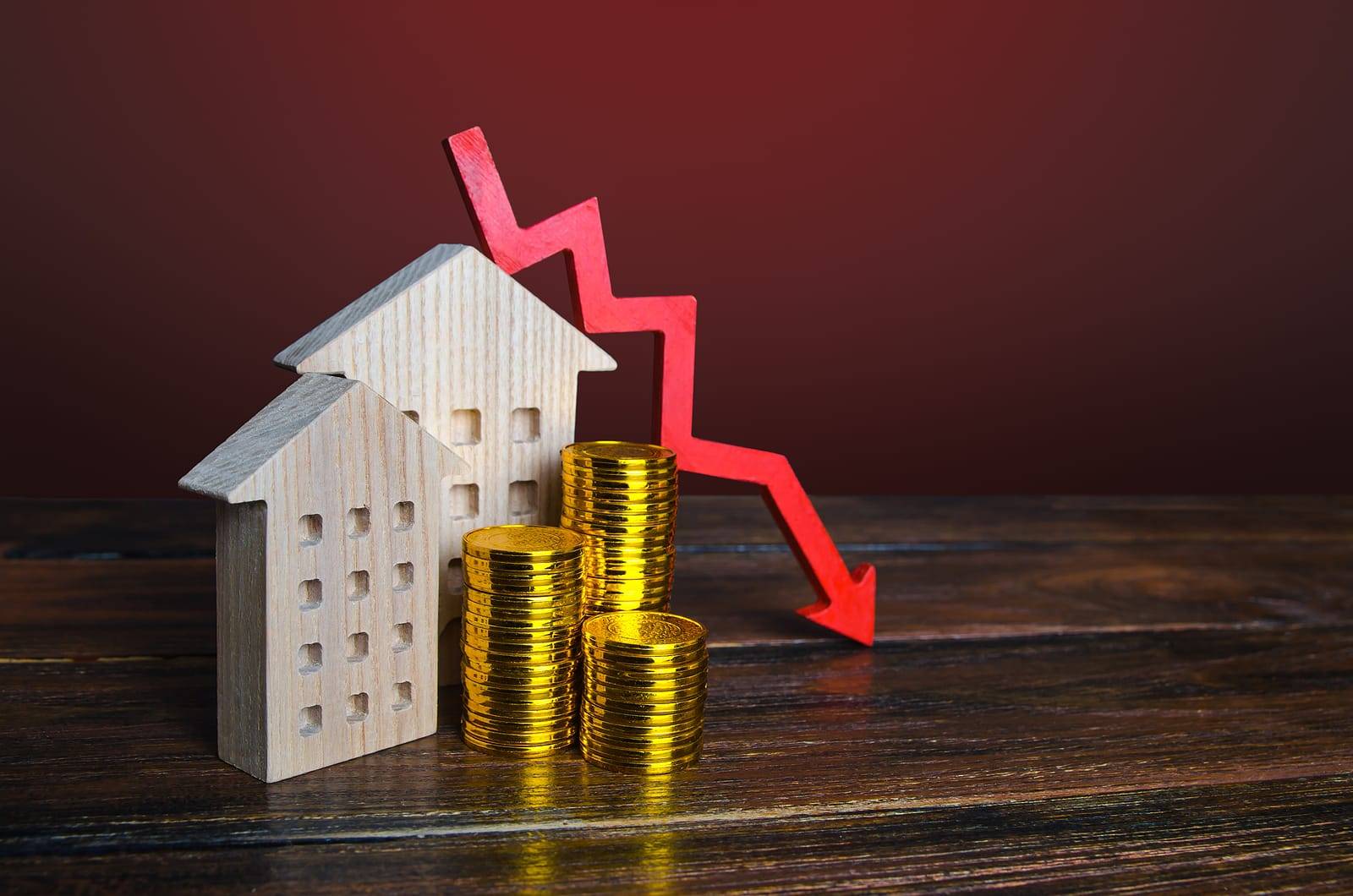
How To Prepare For A Recession With Food And Other Necessities
“Most people, most mere mortals, can’t time the market to save their lives,” says Mark Hamrick, senior economic analyst for Bankrate.com. “Even Warren Buffett would admit that.” According to Saglimbene, when the bear market starts to rise, and the stock market falls to a low point, it can be a great time to invest more as returns will come back.
“You don’t want to make outsized allocation adjustments until the dust settles,” Saglimbene said. “If you’re properly diversified, you’re weathering the storm.” The worst thing an investor could do is sell off everything at such high losses. Don’t try to time the market bottom either; make an investment plan, stick to it, and be confident that it will eventually produce the desired returns.
How To Prepare For A Recession With Savings
In preparation for a recession, it’s essential to save money. When the economy changes, circumstances can easily change and leave you without any money saved. Living paycheck-to-paycheck is a reality for almost one-third of the population in North America.
If you do not already have an emergency fund set up of at least four to six months’ worth of living expenses, consider canceling a vacation, putting off a renovation project that is optional, or making any unnecessary purchases. Another option is committing to a second part-time job with the proceeds going directly to paying down high-interest loans or emergency savings.
For that living paycheck-to-paycheck sector, the rising costs of food and gas due to historically high inflation rates means they may need to rely on debt to come up with basic necessities. With historically high inflation, wages don’t keep up with the rising costs of even the most basic needs.

How To Prepare For A Recession With Food And Other Necessities
It’s essential to prepare for all possible outcomes. The standard rule of thumb is that you should have four to six months’ worth of expenses saved up, but you may need more. Adjusting your emergency reserves based on your situation is essential, especially if there are other family members to consider.
Younger people in the workforce may have more flexibility in their lifestyle and can make changes to avoid risk. Cutting spending at restaurants, nightclubs, and other social activities is usually enough of an adjustment for their savings to increase. Most advisers believe they may only need an emergency reserve fund of three to six months of living expenses on hand.
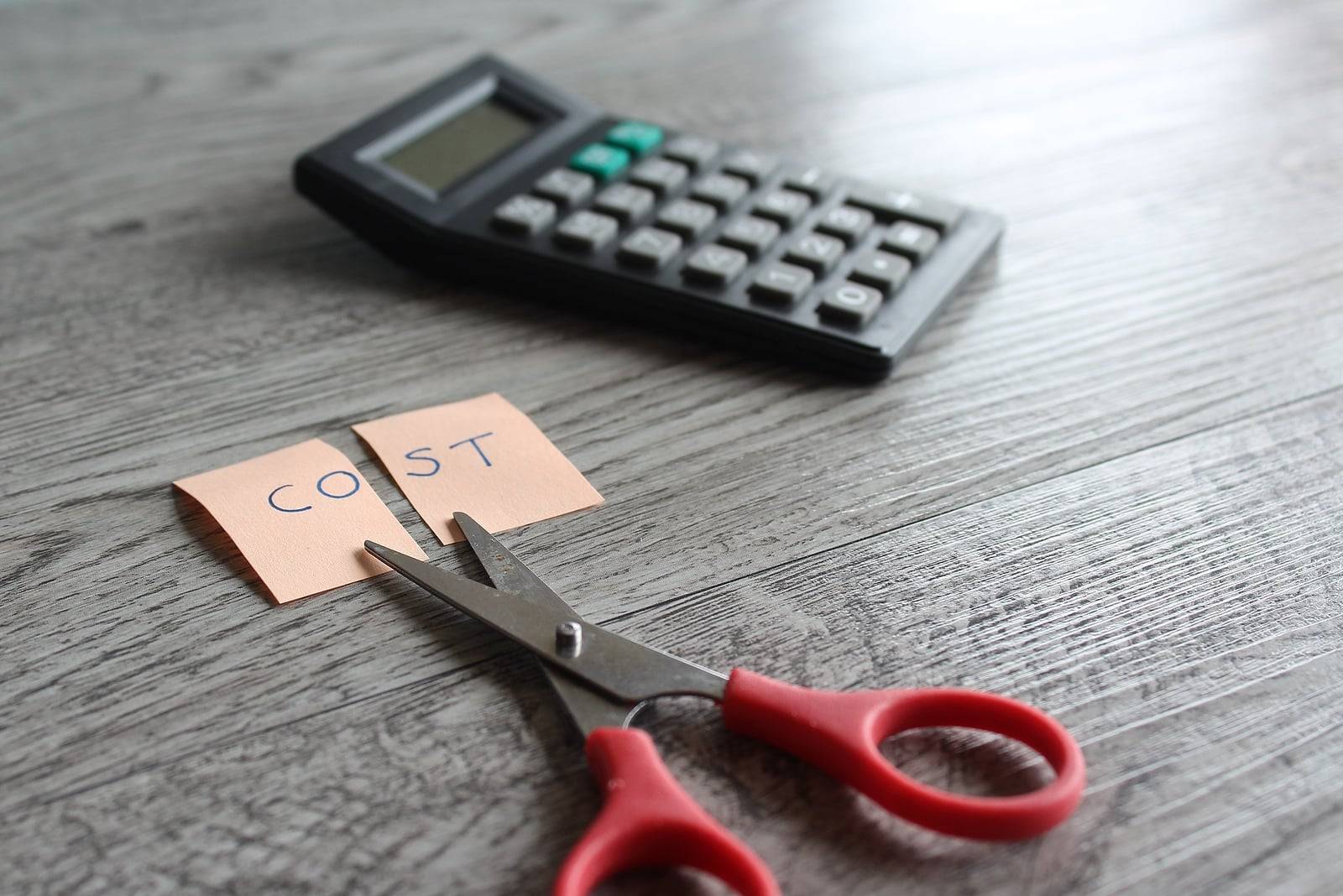
How to prepare for inflation and recession
However, if you’re an older worker and make a high income in a specialized profession, we recommend having at least one year’s worth of savings to avoid difficulties if you lose your job. High-paying executive-level jobs are not easy to come by, so live within your means while working and save as much as possible in additional high-interest savings accounts once your emergency savings account is solid.
If you own your home and are currently employed, a home equity line of credit is another thing to consider when considering how to prepare for a recession. These lines of credit usually require you to be employed and are based on a percentage of the available equity in your home. If you do not withdraw from the line, there is no interest payment, and if you do need to use it, the interest rate is usually considerably lower than a personal loan.
How To Prepare For A Recession With Your Bank – How To Prepare For A Recession With Food And Other Necessities
Breaking up with your bank can be tricky, but there are some reasons why you may want to consider it. How to prepare for a recession with your bank can be as simple as looking closely at their rates. How much interest are they paying you on your savings account?
A quick check on the internet will tell you if their rates are competitive or not. If you are working hard to build your savings, you should reward yourself by finding an account that pays the highest interest on funds. Look closely at the fine print for special offers and bonus periods to ensure a new account is correct.
Also, how much are you paying them in interest on any loans or credit cards? In today’s competitive financial markets, it may be time to consider alternatives to big banks, such as credit unions or online banks. Again, doing proper and thorough research is critical to ensure you and your money are getting the best products that suit your needs.
How To Prepare For A Recession With Food And Other Necessities
As inflation rises monthly, the need to save as much as possible on everyday items such as food, gas, and personal hygiene has become increasingly important. The use of store loyalty cards and food coupons is rising as people begin learning how to prepare for a recession with food and other necessities.
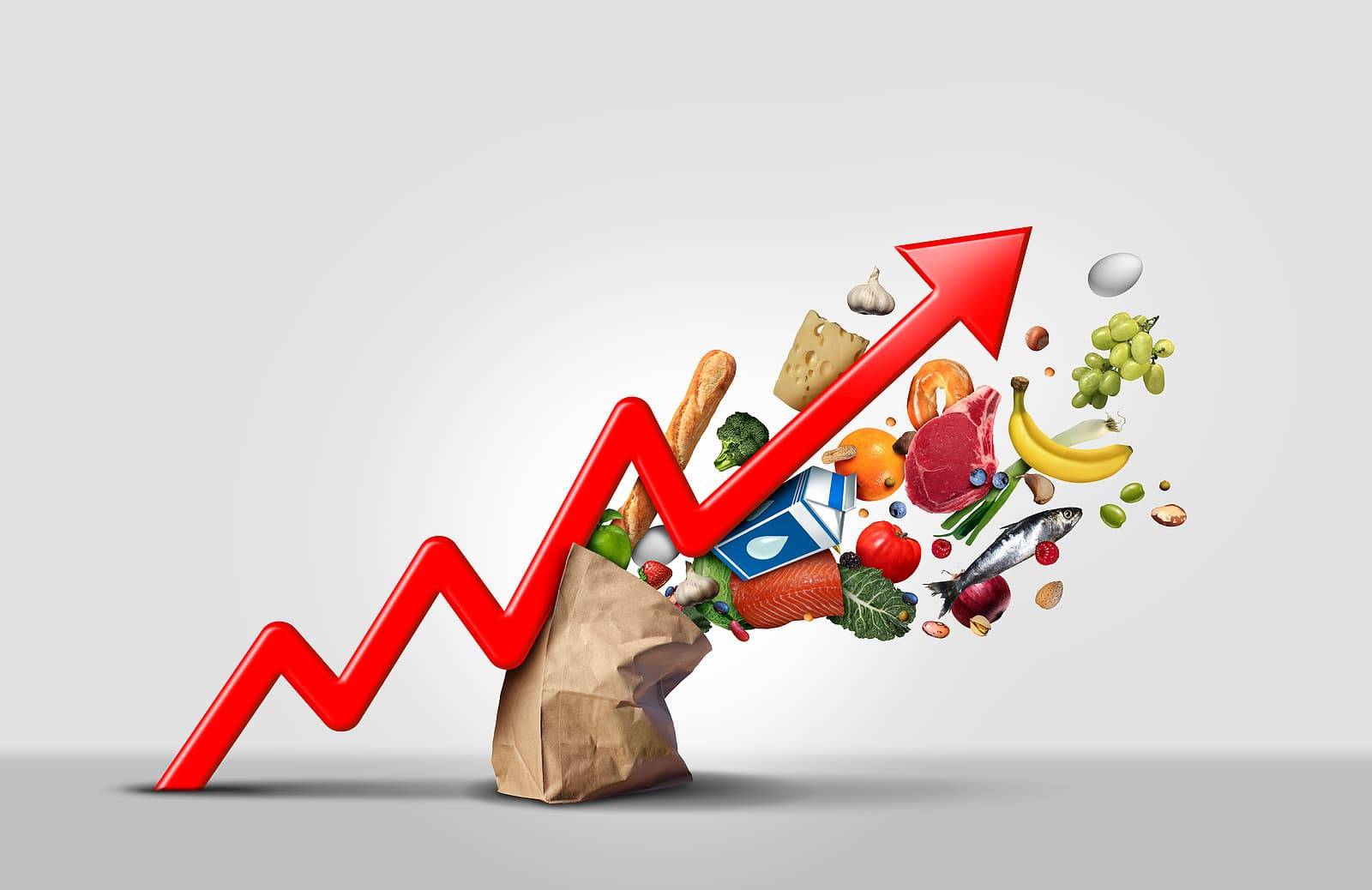
How To Prepare For A Recession With Food And Other Necessities
There are now numerous websites that will do a lot of the research for you. Gas Buddy can tell you where the cheapest gas in town is. Other sites list all the weekly grocery and pharmacy circulars in one spot so you can search all stores for the same items to find the best price. Budget experts agree that making meal plans and a detailed grocery list before shopping reduces impulse buying and saves the average consumer almost 20 percent on weekly groceries.
And the final recommendation on how to prepare for a recession with food and other necessities is to create a well-stocked pantry. For example, stock up when you find excellent deals on staples with a long shelf life, like coffee, pasta, canned goods, and toilet paper. Condiments like mayonnaise, ketchup, and mustard are other examples, as some stores reduce their price by as much as 50% during certain sales.
Read more – Food Shortages in 2022 Surprising Ways to Prepare Now



